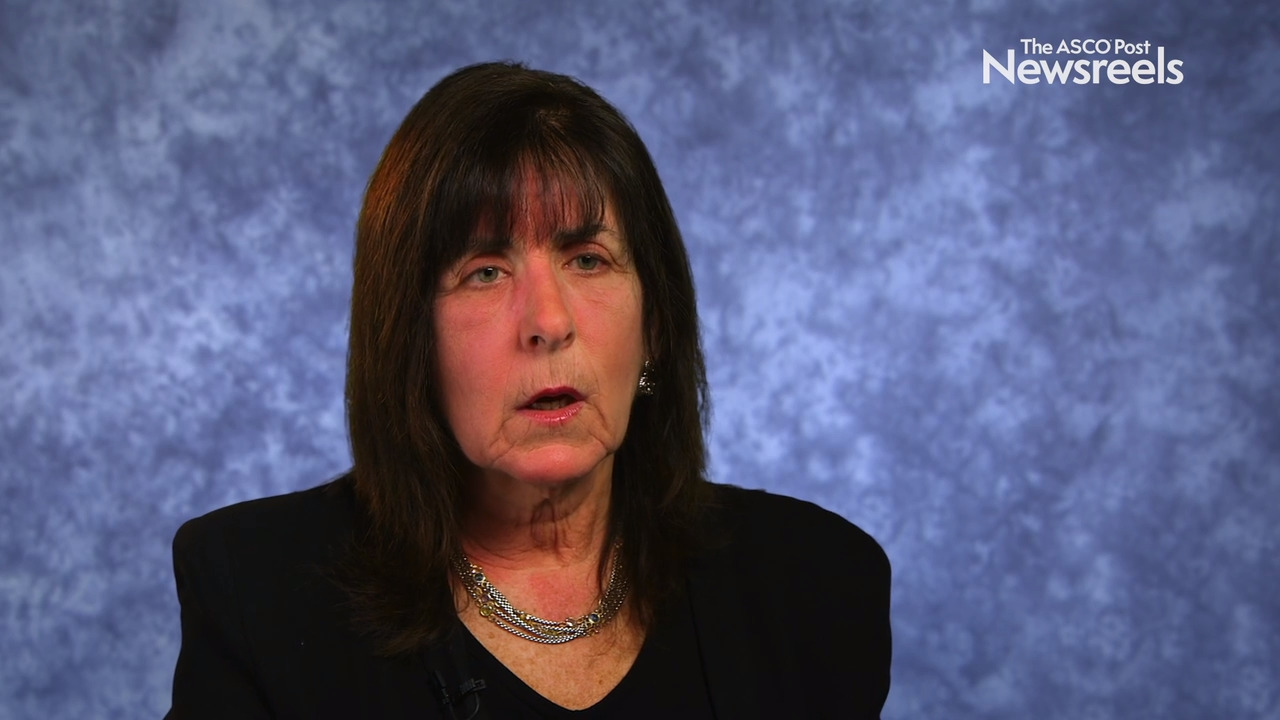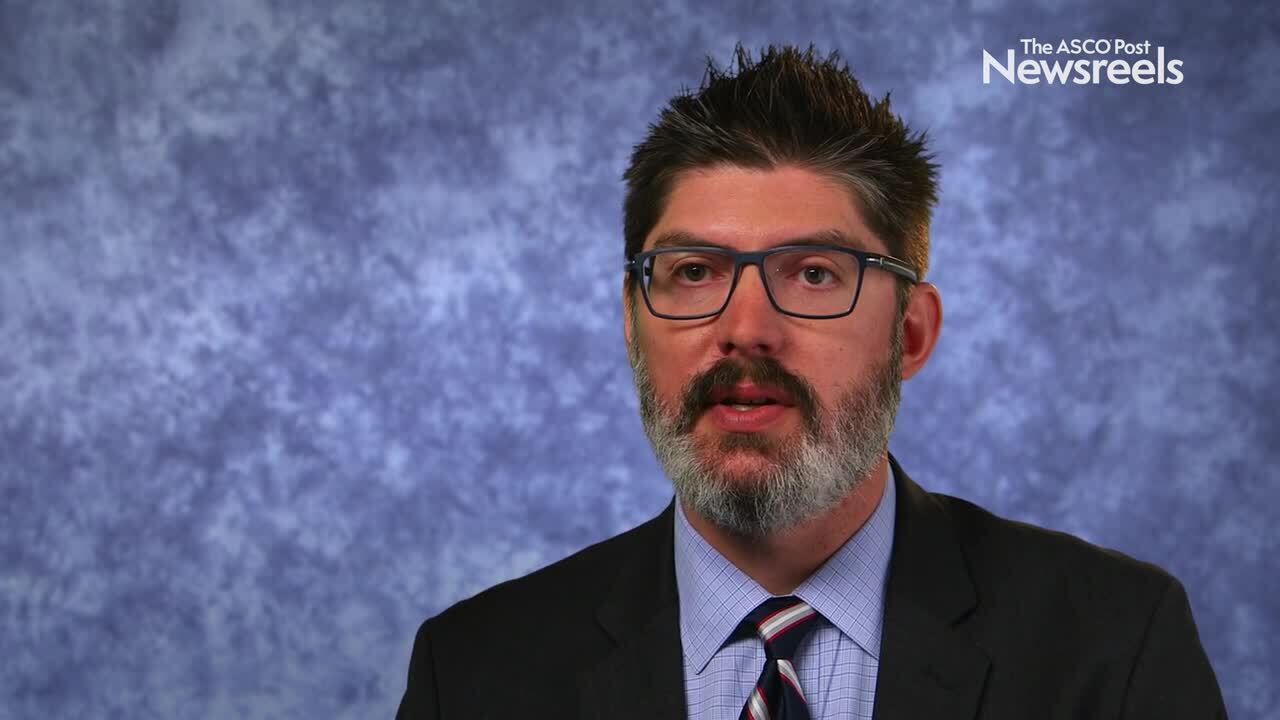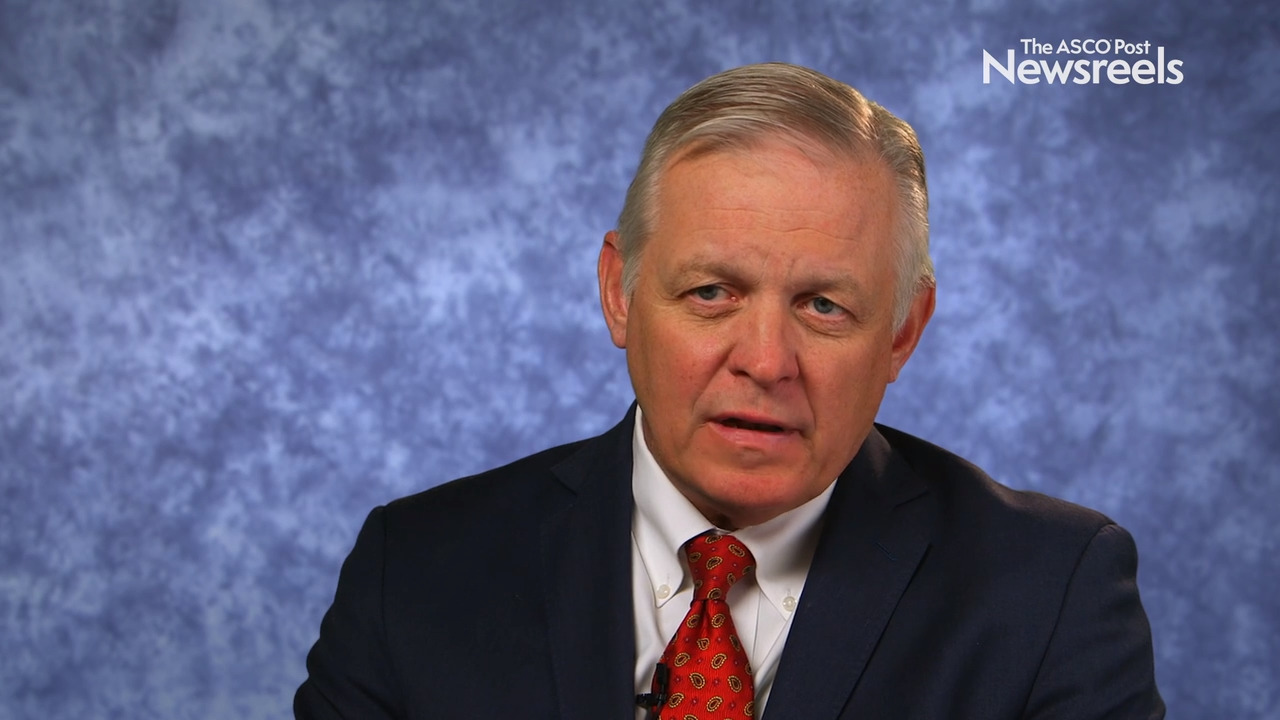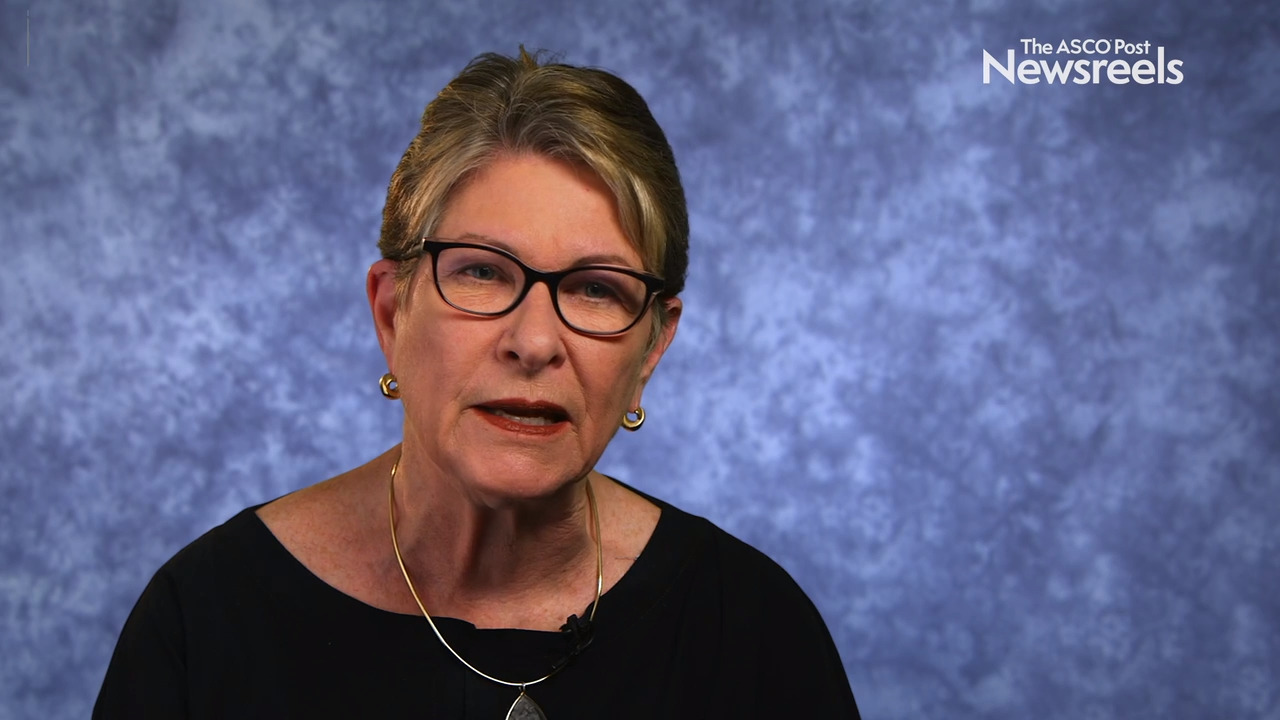Chrysalyne Schmults, MD, on Basal and Squamous Cell Carcinomas: Trends in Data and Practice
NCCN Annual Conference 2019
Chrysalyne Schmults, MD, of Brigham and Women’s Hospital, discusses treatment strategies in these nonmelanoma skin cancers, including surgery, forthcoming staging systems, and ongoing trials combining adjuvant radiotherapy and immunotherapy.
Michelle B. Riba, MD, of the University of Michigan Rogel Cancer Center, discusses the prevalence of distress in patients with cancer, the need for a quick and simple screening method to identify patients with distress, and strategies for improving integration of psychosocial care into routine cancer care.
Frederick L. Locke, MD, of the H. Lee Moffitt Cancer Center and Research Institute, discusses recent approvals of chimeric antigen receptor T-cell therapies in leukemia and lymphoma, and how clinicians are using infrastructure, navigation, and early referrals to maximize response and minimize toxicity.
Gary H. Lyman, MD, MPH, of the Fred Hutchinson Cancer Research Center/Seattle Cancer Care Alliance, discusses current strategies for the use of biosimilars to treat cancer-induced anemia and neutropenia, and the need to provide evidence for the efficacy of these agents to allay any concerns about their use.
William J. Gradishar, MD, of the Robert H. Lurie Comprehensive Cancer Center of Northwestern University, discusses evidence-based first-line treatment options for patients with advanced hormone receptor–positive, HER2-negative breast cancer and toxicities associated with the various therapeutic options.
Margaret A. Tempero, MD, of the UCSF Helen Diller Family Comprehensive Cancer Center, discusses new adjuvant therapy options for patients with pancreatic cancer, and germline testing, including testing for microsatellite instability/mismatch repair genes as well as molecular analysis of all tumors.





